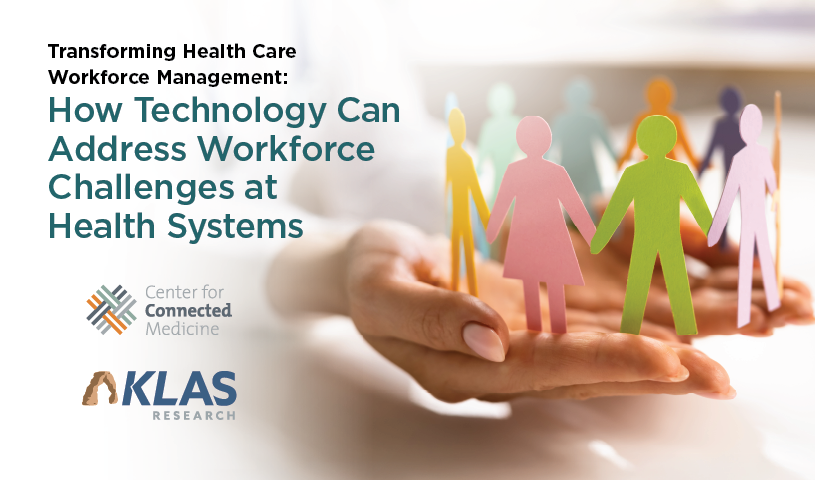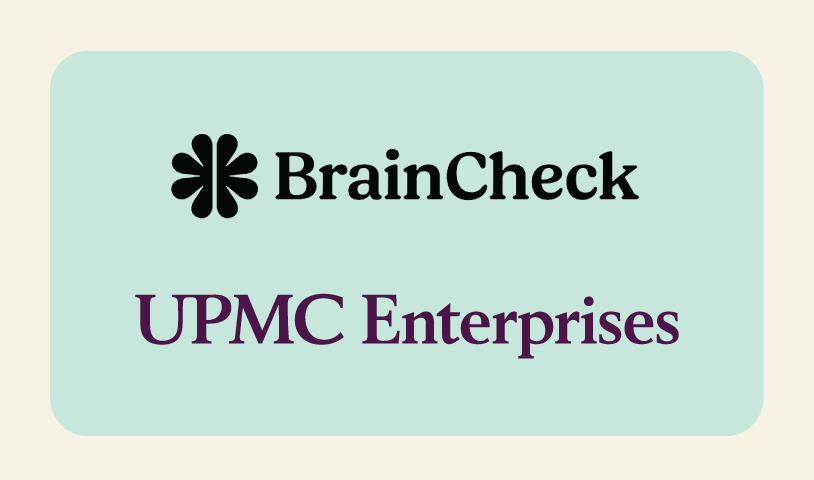Coming out of Health Datapalooza, we’re energized by the exciting announcements we heard and cutting-edge work we were able to share in Washington, DC.
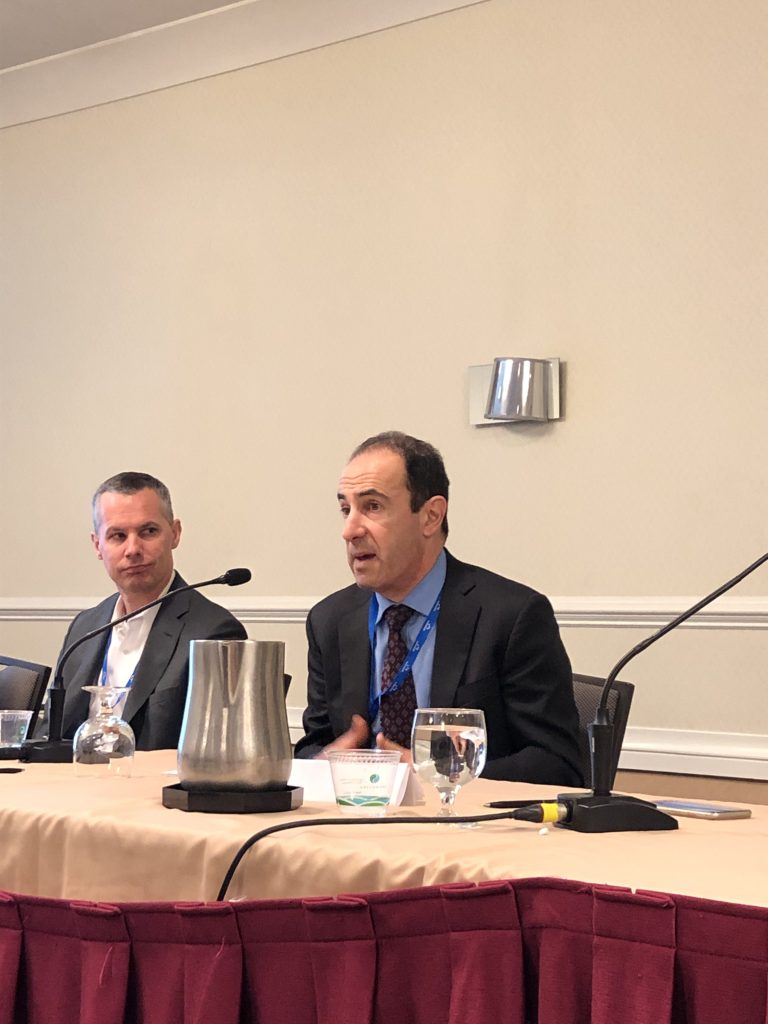
Health Datapalooza brings together data experts and tech leaders with a wide range of health care stakeholders, from policymakers to providers to patients, all focused on improving health care. For the 10th Anniversary of the conference, data liberation continued to be a key theme, with a number of policymakers sharing their thoughts and action plans to help patients take control of their data. Attendees also had the opportunity to hear from two inspiring patients – Emily Kramer-Golinkoff and Doug Lindsay – who have taken an active role in driving data-driven research and cures based on their own health care challenges. There were some big announcements as well, including a $1.65 million Artificial Intelligence Health Outcomes Challenge from CMS focused on predicting and preventing adverse events and admissions.
On Tuesday, Adam Berger, Chief Technology Officer at UPMC Enterprises, joined executives from Intermountain Healthcare and Kaiser Permanente to examine the topic of “AI in the Real World: Expectation vs. Reality.” While AI technology is becoming more common in everyday life, from voice assistants to self-driving cars, the complexity of the health care industry offers many challenges, but also many opportunities, to make a difference in patient care. The panel agreed that clinical engagement is key for AI efforts – that by quantifying the opportunity and showing the clinician how the AI tool will save time on menial tasks, AI can actually support clinicians’ desire to move “up the stack” and focus on patient care and tasks that leverage their skill set.
Dr. Berger shared examples of how UPMC is using AI algorithms in imaging and radiology, and pointed to two key opportunities to leverage AI’s impact: solving problems around social determinants of health with unstructured data to reduce readmission risk, and automating chart abstractions for quality metrics.
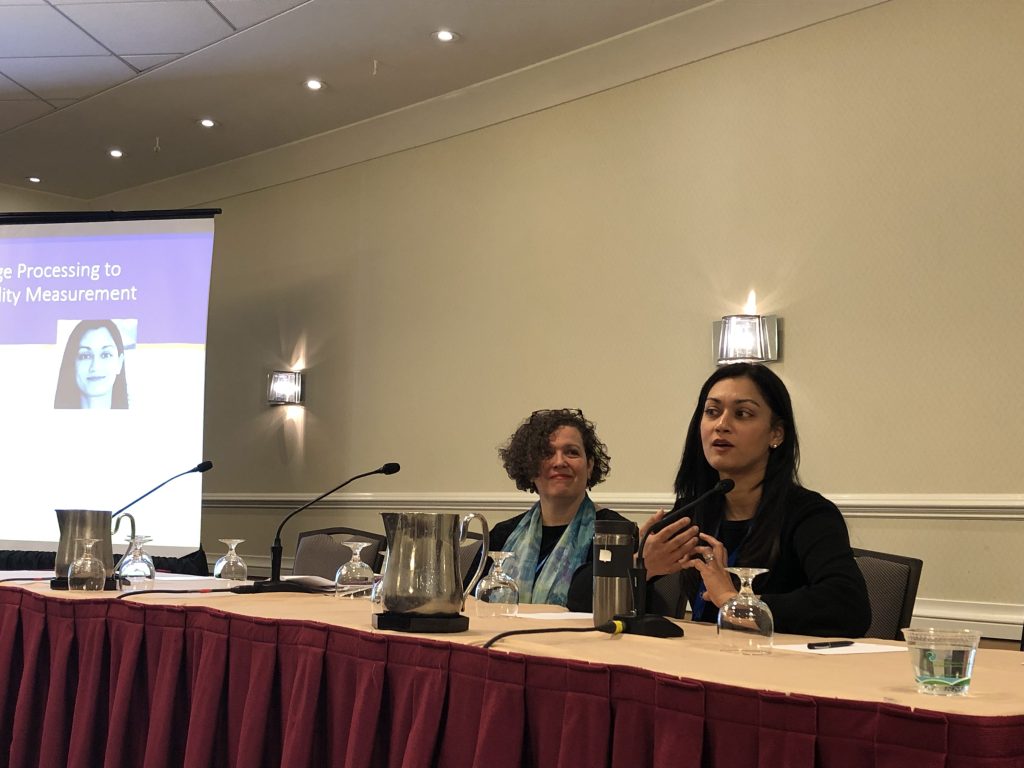
We dove deeper into this second opportunity on Thursday during our “Unconference” session, featuring Rebecca Jacobson, Vice President, UPMC Enterprises and Pamela Peele, Chief Analytics Officer, UPMC Enterprises and UPMC Health Plan, and Mona Siddiqui, Chief Data Officer, Department of Health and Human Services. Dr. Siddiqui kicked off the session by sharing her personal experiences as a physician with health care quality metrics, expressing that while there is a lot of talk about exciting technology and new methods of analysis, the basics around meaningful metrics are still lacking.
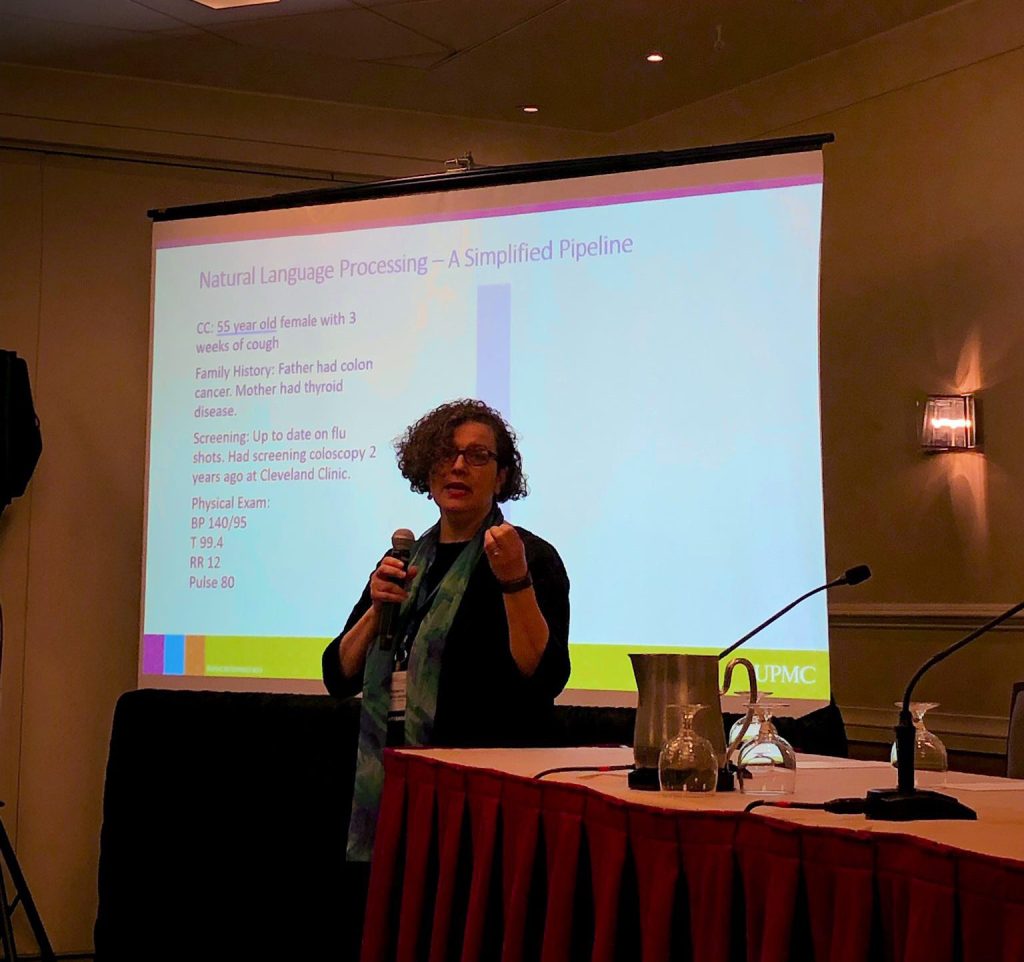
Dr. Rebecca Jacobson then shared a case study around UPMC’s efforts with natural language processing (NLP) in abstracting patient notes – illustrating how NLP can help to unlock health care quality measurement, resulting in an increased volume of charts reviewed, a shorter median abstraction time. Following the case study, which detailed the results of three field evaluations of the NLP tool, Dr. Pamela Peele led the room in a lively discussion around the power of NLP. One thing was clear – while many were interested in NLP, few have taken steps to activate it within their health systems, and see it as a key opportunity for the future.
Overall, we enjoyed the lively discussion and debate on how best to liberate data and push for a more open health data system.
